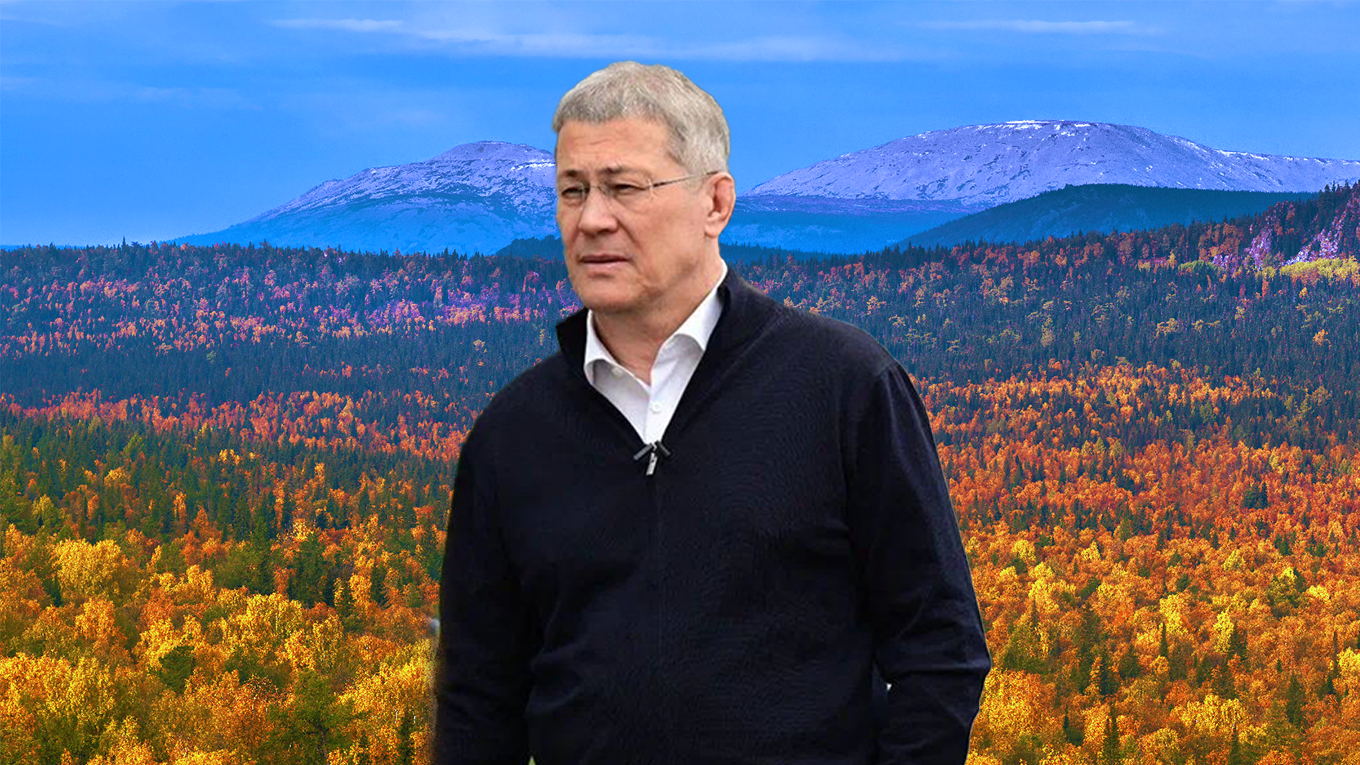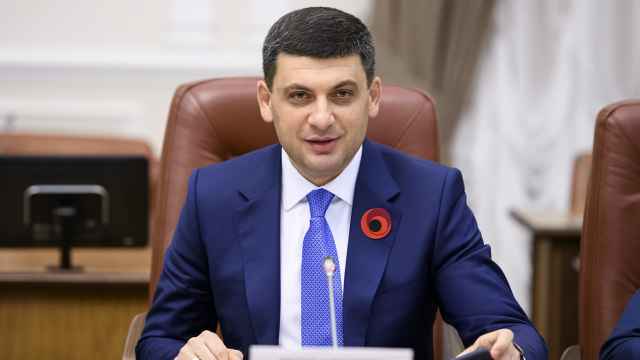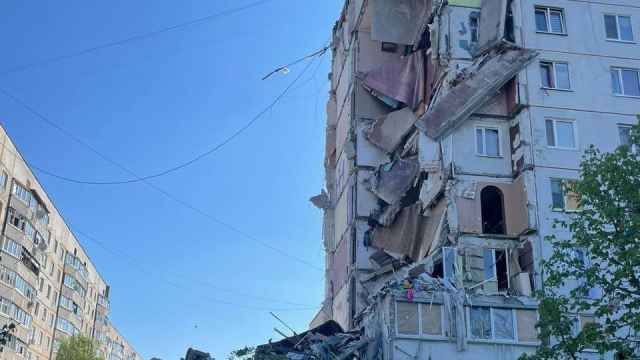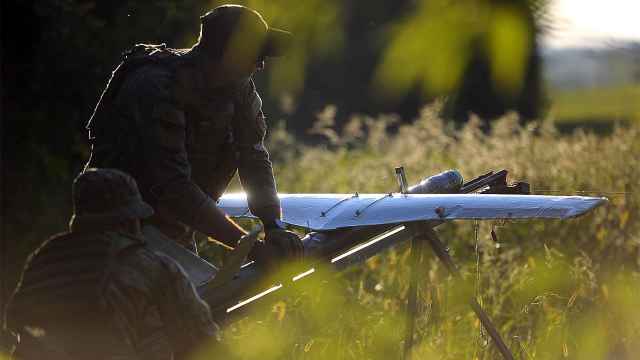Hello and welcome to the latest edition of The Moscow Times’ Regions Calling newsletter, where our reporters examine key trends and events shaping life and politics in Russia’s regions.
This week, MT’s Indigenous special correspondent Leyla Latypova unpacks why the leader of her native republic of Bashkortostan, which has suffered some of the highest losses in the invasion of Ukraine, is now ordering the creation of the republic’s first Ukrainian cultural center.
Subscribe here so you never miss an issue.
Radiy Khabirov, the head of Russia’s republic of Bashkortostan, knows how to cause a scene.
In his nearly seven-year tenure, the Kremlin-aligned politician has made countless public moves to reinforce his carefully crafted persona as an unbreakable alpha male. He frequently reprimands his subordinates in public using a tone better suited for the gang drama “Slovo Patsana” and doesn’t shy away from verbal attacks on prominent community elders.
In other words, Khabirov has done plenty to shock the public, whether by defying cultural etiquette or by exhibiting unparalleled cruelty to his own people (it was he who oversaw unprecedented repressions in the aftermath of the Baymak protests).
But his latest move must have caught even his most seasoned observers by surprise.
At a routine government meeting on Monday, Khabirov ordered Bashkortostan’s Culture Minister Amina Shafikova to oversee construction of a Ukrainian cultural center in Bashkortostan — a move, which, he said, was inspired by his trip to the Ukrainian village of Zolotonoshka in southwestern Bashkortostan.
“There are quite a lot of Ukrainians living here on our [land]...This will be our way of showing that we respect them for preserving their culture,” Khabirov told Shafikova.
The Ukrainian diaspora in Russia has traditionally been among the largest in the world, with as many as 2.9 million Russian residents identifying as Ukrainian in the 2002 census. However, this fell to 1.9 million in 2010 and to just 800,000 in 2020, the most recent available data.
Bashkortostan’s Ukrainian diaspora amounts to slightly more than 14,800 people, according to the latest census. In the village of Zolotonoshka, Ukrainians comprise the majority of its 420 residents, making it one of the few majority-Ukrainian enclaves in the republic and in Russia overall.
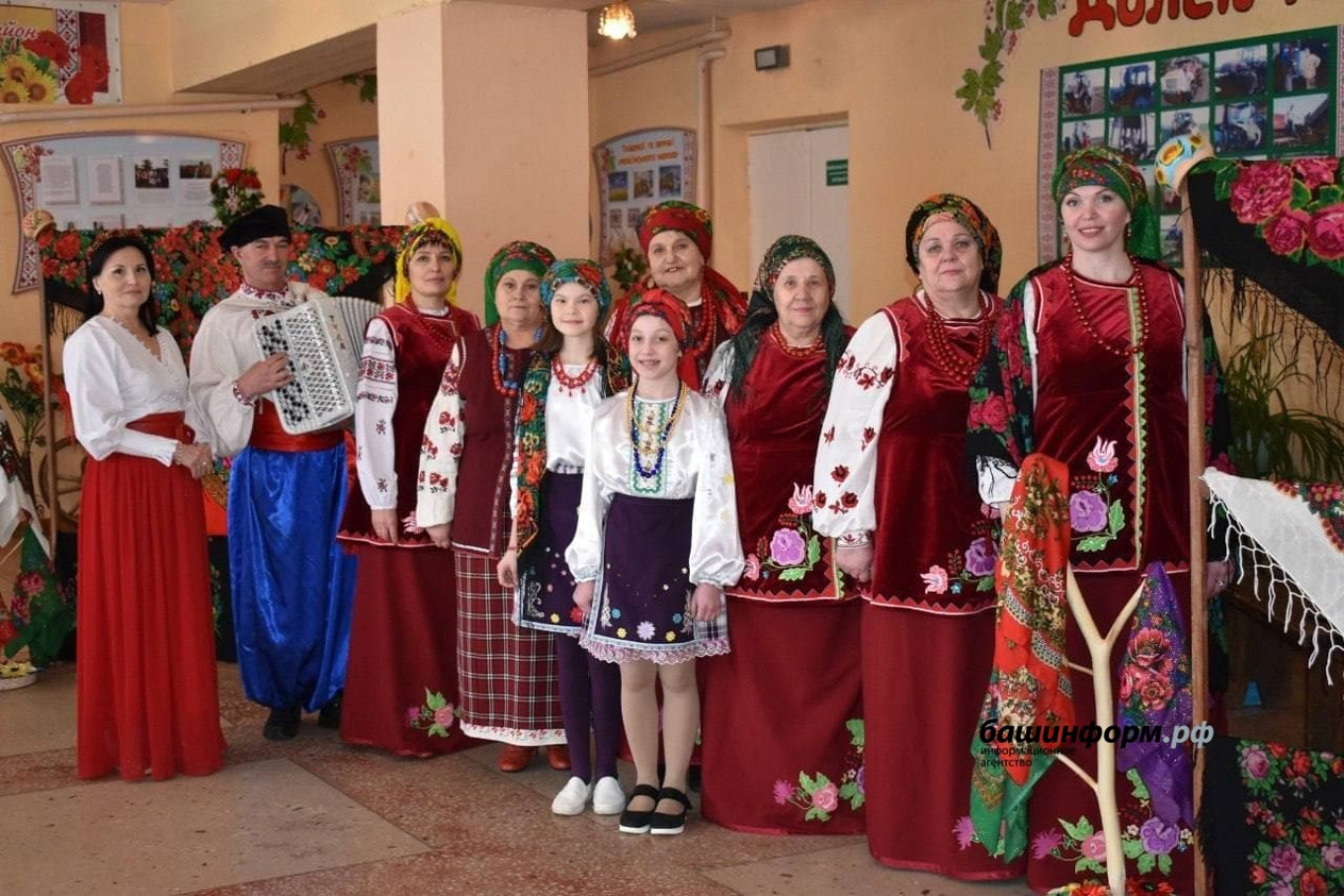
Russia’s vast Ukrainian community has been living under pressure for decades. As relations between Russia and Ukraine worsened, the more difficult and dangerous it became for Ukrainians in Russia to display their ethnic identity.
This pressure has increased exponentially since the Kremlin sent tanks across the border with Ukraine in 2022, a move that prompted many Ukrainians in Russia to flee the country in defiance of the war, growing surveillance and increasingly unbearable demands to assimilate.
(You can read a more detailed account and analysis of the varying experiences of ethnic Ukrainians in Russia amid the war in this feature I co-authored back in 2023.)
“My father was forced to flee Russia precisely because he was persecuted by the FSB for being Ukrainian,” said Marika Semenenko, a Moscow-born Ukrainian entrepreneur and expert in nationalism studies.
Marika’s father, Valery Semenenko, is a prominent figure in Russia’s Ukrainian diaspora, having headed two Ukrainian cultural institutions that were shut down by the Kremlin.
“People's attitude toward him changed together with the propaganda narratives: at first, he was a ‘Banderite.’ With the full-scale invasion, he became a ‘fascist’,” Marika told me.
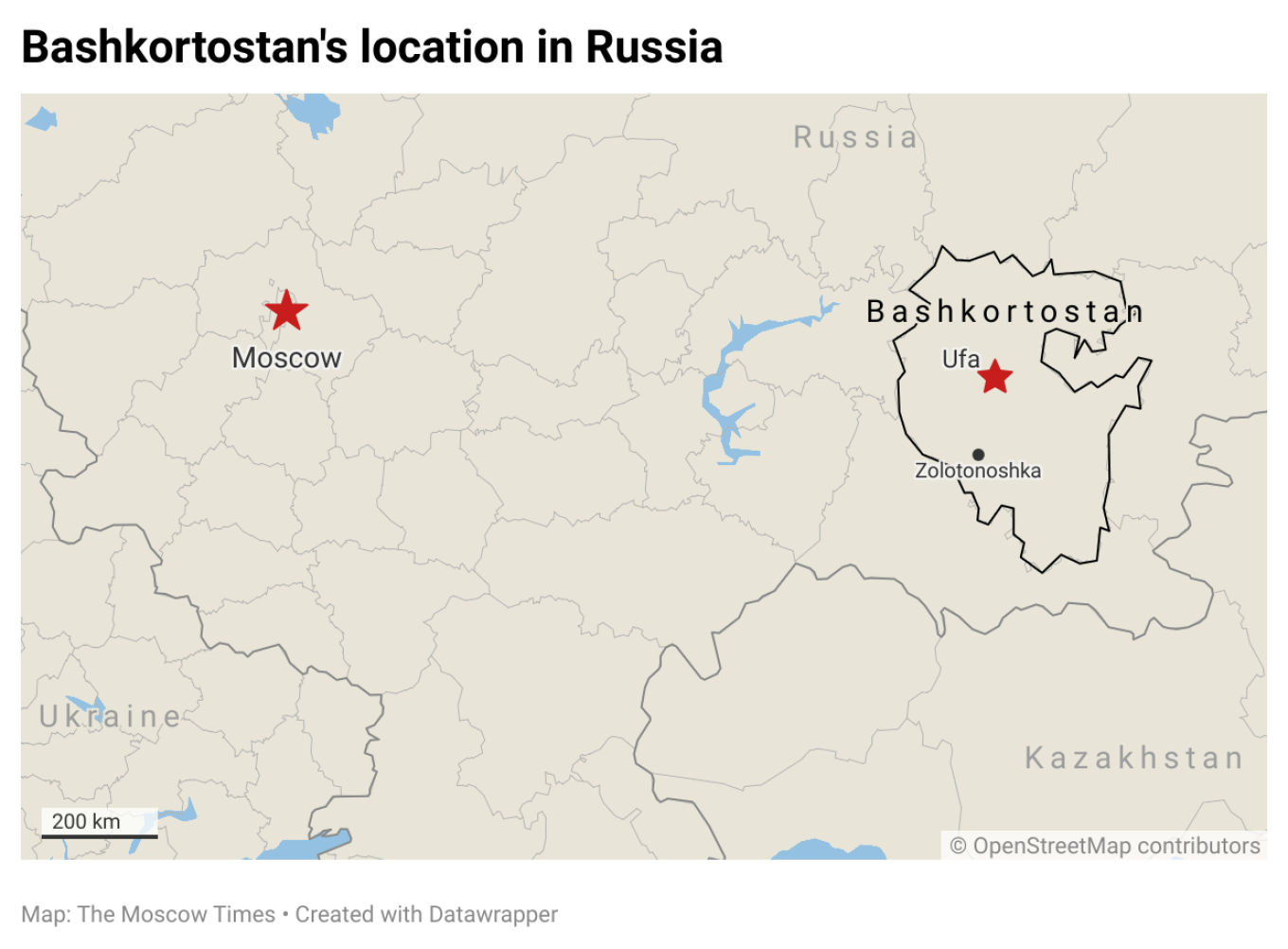
Given Marika’s background and expertise on ethnic and Indigenous activism in Russia, I was curious to hear her interpretation of Khabirov’s move. It turns out, she was just as puzzled as I am.
“Indigenous activists in the republics are vilified as separatists, terrorists and extremists. All of those labels are also used against ethnic Ukrainians in Russia today,” Marika noted.
“So, knowing how the head of Bashkortostan treats Bashkir activists, this all seems paradoxical. I don’t understand the nature of it right now, but it looks as if the head of Bashkortostan has somehow decided to make a statement against Moscow,” she told me.
Marika noted that Bashkortostan’s neighbor, Tatarstan, also recently greenlit a literary competition in honor of Ukrainian national poet Taras Shevchenko, in clear contrast with the Kremlin’s official policy of suppressing Ukraine’s national identity.
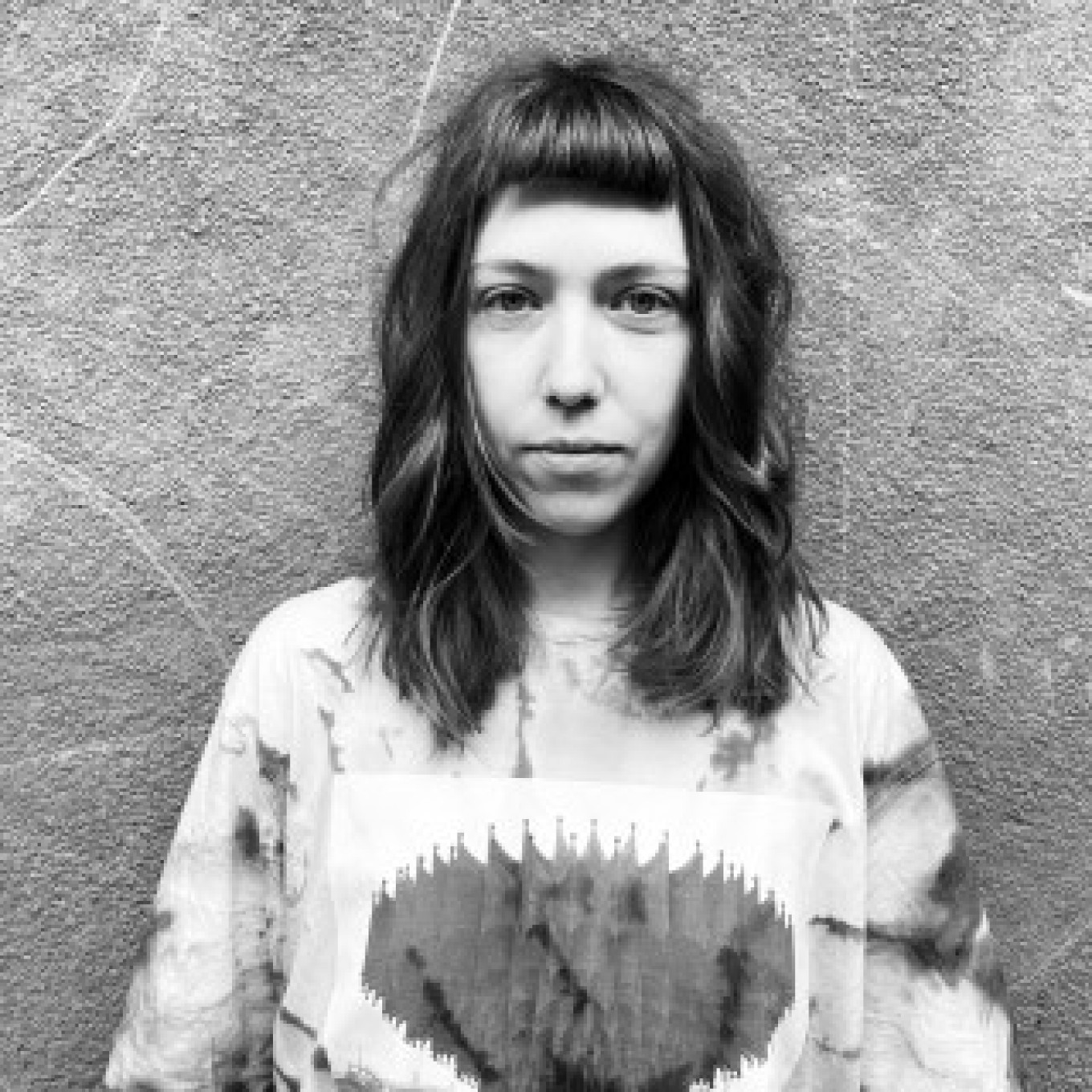
“It’s clear that the authorities in these republics are completely loyal to Moscow — for now. But the discourse, the attitude, the dynamics can shift very easily. Because even now, while Moscow is persecuting and destroying ethnic Ukrainians, the attitude can be different in the republics,” Marika told me.
“‘Hope’ is a strong word, but maybe this paradox shows that things aren’t so black and white,” she concluded.
As we spoke, I floated my own explanation of the events.
Unlike Tatarstan’s Rustam Minnikhanov, Radiy Khabirov is the Kremlin’s man through and through; hence, he most definitely sees Ukrainians in Bashkortostan as a threat to national security and stability.
Establishing a Ukrainian cultural center would allow Khabirov to check two boxes at once. His Ukrainian constituents will feel appreciated and represented, and his republic’s authorities will be able to closely regulate Ukrainian cultural activities — all while facilitating FSB surveillance of the community.
In other words, Khabirov is determined to ensure that residents of Zolotonoshka are “the right Ukrainians” in the eyes of the Russian regime.
Marika reminded me that this division between “the right Ukrainians” loyal to the government and “the wrong Ukrainians” who express their political vision for an independent homeland has roots in the Soviet era. And these same divisions and patterns apply to virtually any other ethnic group colonized by Russia.
“Now, amid the full-scale war, it feels like that old policy of dividing Ukrainians into ‘good’ and ‘bad’ doesn’t exist anymore. The current Russian policy is: destroy all Ukrainians or turn them into Russians — basically declaring that Ukrainians don’t exist as such, that they are just the ‘wrong kind of Russians’ who need to be corrected,” said Marika.
“The government now is so totalitarian that it’s easier for them to arrest, ban and imprison a few activists and force the rest into silence. That’s what they’re doing with Ukrainians — and not just Ukrainians, but with Indigenous activists too,” she continued. “That’s why [Khabirov’s] initiative seems like a prank to me.”
A prank, a statement, or a well-thought-out policy? Only time will tell what exactly Radiy Khabirov has in mind.
A Message from The Moscow Times:
Dear readers,
We are facing unprecedented challenges. Russia's Prosecutor General's Office has designated The Moscow Times as an "undesirable" organization, criminalizing our work and putting our staff at risk of prosecution. This follows our earlier unjust labeling as a "foreign agent."
These actions are direct attempts to silence independent journalism in Russia. The authorities claim our work "discredits the decisions of the Russian leadership." We see things differently: we strive to provide accurate, unbiased reporting on Russia.
We, the journalists of The Moscow Times, refuse to be silenced. But to continue our work, we need your help.
Your support, no matter how small, makes a world of difference. If you can, please support us monthly starting from just $2. It's quick to set up, and every contribution makes a significant impact.
By supporting The Moscow Times, you're defending open, independent journalism in the face of repression. Thank you for standing with us.
Remind me later.



